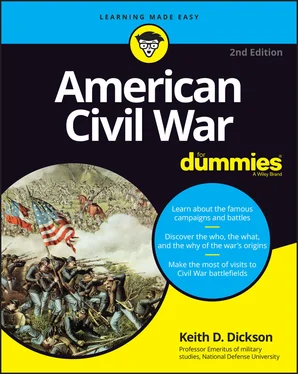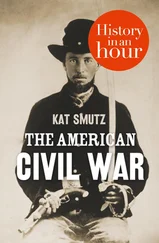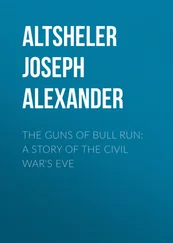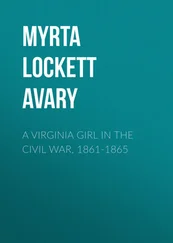In the Confederate armies, officers with political influence at the state level were usually former U.S. senators or rich planters hoping to make a name for themselves. President Davis initially relied on his available pool of experienced army officers for generals. Later, he did not usually promote an officer to general’s rank until that officer had displayed battlefield leadership.
When comparing the overall quality of officer talent between the Union and the Confederacy, the advantages initially clearly lay with the Confederacy. Some of the most capable officers in the U.S. Army had joined the Confederacy. The South was also blessed with a superior cadre of mid-level officers who had graduated from the many military colleges found in nearly every Southern state. These men easily integrated into the army and immediately made their presence felt, providing leadership and discipline for the often unruly volunteers. The depth of military talent and experience within the Confederate officer ranks helped them to create a viable military force within a relatively short period of time, especially in the Eastern Theater. Regardless of their officer leadership, both the Union and Confederate armies would discover that the battlefield would teach the hardest lessons.
Military bloopers: The political generals
The political generals, as the generals who were appointed for solely political reasons were known, continued to plague both armies throughout the war. Lacking any military talent and blundering from one disaster to another, they nonetheless remained as a symbol of the critical link between politics and war. Most of these generals sought more useful (and safer) opportunities for national service outside of the army after their first taste of combat. To be fair, some officers who received their commissions through political connections displayed skill and talent, but these were the exceptions.
Rookies learning a new trade: the blind leading the blind
In the early months of the war, it was not unusual to see newly commissioned captains, majors, colonels, and generals in the camps of both armies pouring over instruction manuals, trying to stay one step ahead of their trainees. Because so many officers were required for the large new armies, there was not enough expertise to go around. Officers with military experience were usually promoted to high rank early in the war. That left all the ranks of junior officers to be filled with volunteers who often had no idea what their role was in a military organization. Not only did the privates have to learn what soldiers did, but also the new officers had to learn soldier skills in addition to learning their own jobs. Even President Lincoln took time to study military science to acquaint himself with the terms and concepts of military operations — in just about the same way you are doing now!
Конец ознакомительного фрагмента.
Текст предоставлен ООО «ЛитРес».
Прочитайте эту книгу целиком, купив полную легальную версию на ЛитРес.
Безопасно оплатить книгу можно банковской картой Visa, MasterCard, Maestro, со счета мобильного телефона, с платежного терминала, в салоне МТС или Связной, через PayPal, WebMoney, Яндекс.Деньги, QIWI Кошелек, бонусными картами или другим удобным Вам способом.












